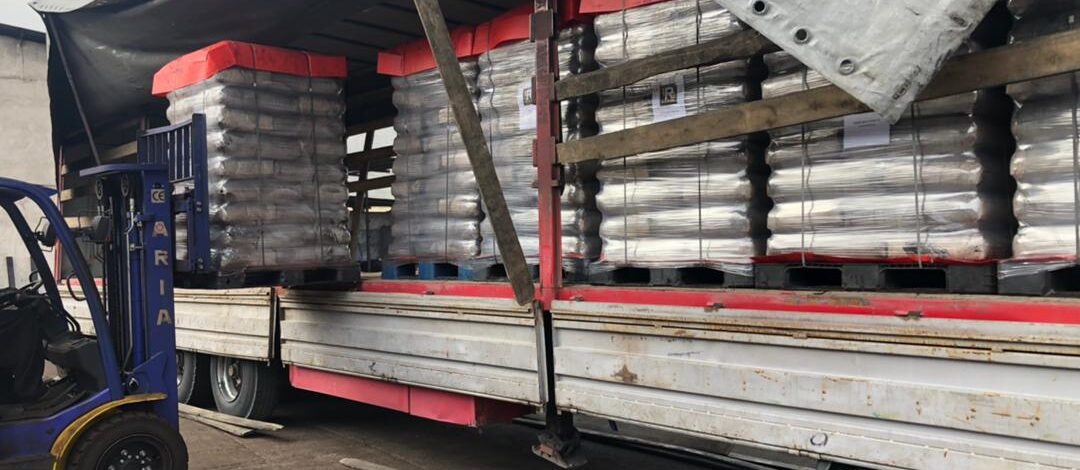A Key to Healthier Crops
Introduction to Lime in Soil pH Management
Lime, derived from calcium-containing minerals like limestone, plays a critical role in soil pH management. In agriculture, maintaining the correct soil pH is essential for maximizing crop yield and ensuring healthy plant growth. Lime minerals, in the form of agricultural lime (calcium carbonate) or quicklime (calcium oxide), are widely used to neutralize acidic soils, providing a sustainable and cost-effective solution for farmers. This article explores how lime mineral helps manage soil pH and its importance in sustainable farming practices.

The Role of Lime in Adjusting Soil pH
Soil acidity can limit the availability of essential nutrients to plants, negatively impacting crop productivity. Lime mineral is an effective solution for adjusting soil pH and improving overall soil health. Here’s how lime works:
- Neutralizing Soil Acidity: Lime contains calcium, which reacts with acids in the soil to neutralize excess hydrogen ions, raising the pH level. This reduces soil acidity, creating a more favorable environment for plant roots to absorb nutrients like nitrogen, phosphorus, and potassium.
- Enhancing Nutrient Availability: By increasing soil pH, lime helps improve the availability of vital nutrients. In acidic soils, many nutrients are locked up and unavailable to plants. Lime corrects this imbalance, promoting better nutrient uptake, leading to healthier crops and improved yields.
- Improving Soil Structure: Lime also enhances soil structure by encouraging the aggregation of soil particles. This results in improved aeration, better water infiltration, and enhanced root penetration, creating optimal growing conditions for crops.
https://iranmineral.net/lime-mineral-in-construction/
Benefits of Lime for Soil Health and Crop Growth
The use of lime in soil pH management offers numerous benefits to both farmers and the environment. Here are the key advantages of using lime in agriculture:
- Increased Crop Yields: Correcting soil pH with lime significantly boosts crop production. When soil acidity is managed, crops can absorb nutrients more efficiently, leading to increased growth, healthier plants, and higher yields.
- Reduced Fertilizer Requirements: Acidic soils can prevent fertilizers from being fully effective. By neutralizing the soil, lime allows fertilizers to work more efficiently, potentially reducing the amount of fertilizer needed. This not only saves costs but also reduces the risk of nutrient runoff into water systems, supporting environmentally sustainable farming practices.
- Long-Term Soil Health: Lime’s effects on soil pH are long-lasting, meaning fewer applications are needed compared to chemical fertilizers or other soil treatments. This creates long-term benefits for soil health, maintaining the productivity of farmland for years to come.
Application of Lime in Soil Management
Lime can be applied in various forms and methods to manage soil pH, depending on the type of soil and crops being cultivated. Common methods include:
- Broadcasting: Lime is spread evenly across the soil surface using a spreader. This method is ideal for large-scale farming and helps ensure uniform application.
- Incorporation into the Soil: After broadcasting, lime is often worked into the soil using a plow or rototiller to ensure that it penetrates deeper layers and improves pH levels throughout the root zone.
- Spot Treatment: For smaller gardens or specific crops, lime can be applied directly to targeted areas of soil that need pH correction. This method conserves lime and addresses localized acidity issues.
Farmers should conduct soil tests to determine the appropriate lime type and quantity for their land. Regular monitoring ensures that the soil remains at optimal pH levels for crop growth.
The Benefits of Bentonite In Garden
Challenges in Using Lime for Soil pH Management
While lime is highly effective in managing soil pH, there are some challenges that must be addressed for successful application:
- Over-Application Risks: Applying too much lime can cause the soil to become too alkaline, which can be as damaging as excessive acidity. Soil testing and accurate measurements are critical to avoid this issue.
- Slow Reaction Time: Lime does not immediately change soil pH. The effects can take several months to fully manifest, so planning is essential for farmers looking to improve their soil ahead of planting seasons.
- Soil Type Considerations: Different soil types, such as sandy or clay-heavy soils, may require different amounts or types of lime to achieve the desired pH balance. Working with agronomists or soil experts can help tailor lime applications to specific soil conditions.

